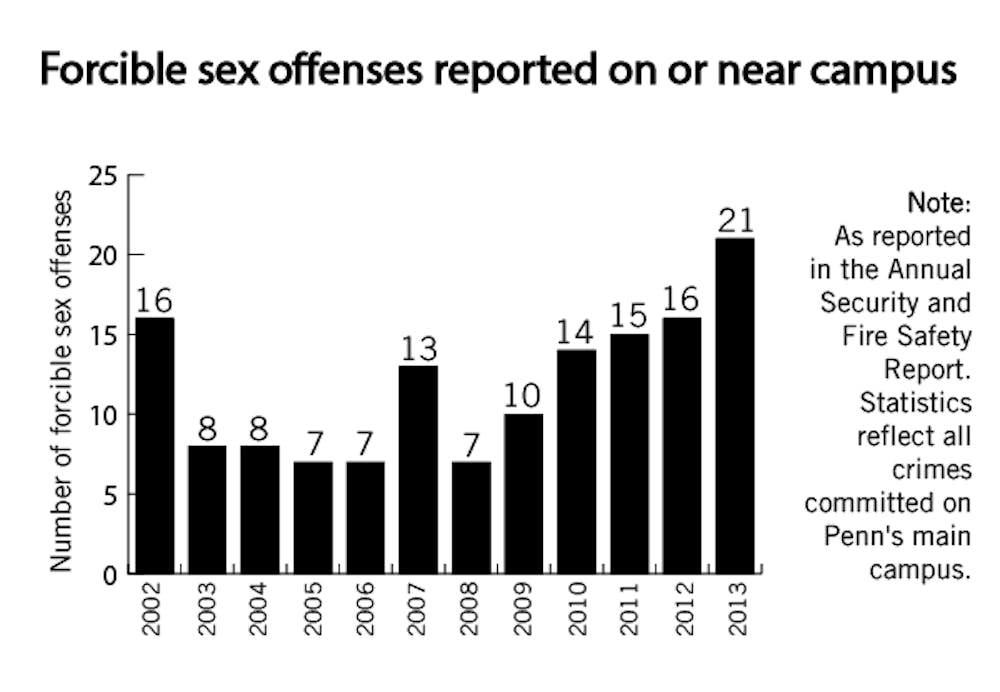
Penn administrators have expressed concerns with a proposed bill to change sexual assault protocols at colleges across the country.
The Campus Accountability and Safety Act, introduced in the U.S. Senate on July 30, would require new and increased protocols for how universities report and handle sexual assault — namely, a student survey of campus assaults, new fines for failure to report sexual assault crimes and increased support for alleged victims on campus.
The bill is part of the increasing national discussion about sexual assault, which has most recently manifested itself at Penn in a proposal to hire a Sexual Violence Investigative Officer to investigate sexual assault claims.
“My own position is that one sexual assault is one too many on any campus,” said Penn President Amy Gutmann in a meeting with The Daily Pennsylvanian at the beginning of the semester. “There has to be a fair and effective way of dealing with accusations of sexual assault. And I think we at Penn take this extremely seriously – period.”
While Gutmann emphasized the importance of eliminating sexual assault on campus, she did not fully endorse the proposed legislation when asked about it in August, citing potentially burdensome regulations.
“There shouldn’t be more regulation than there is known to be effective because if you have too much regulation, you stifle creativity and progress,” Gutmann said. “I think it is yet to be shown whether the new regulations pass that test, or fail that test. Whatever the case may be, there is no doubt that at Penn we will do everything to comply with it.”
In a meeting with the DP in September, Provost Vincent Price also discussed combatting campus sexual assault, but specifically identified the bill’s mandated student survey as troublesome. The legislation would require colleges to administer an annual sexual assault survey in order to create a national database for parents and students to compare universities.
“If you take any pressing problem — and sexual violence is fairly considered to be a pressing matter of health — you have to attack it by having systems in place to help people who need help,” Price said.
“Surveys are not the answer,” he added. “Surveys are defective instruments for all kinds of reasons ... but my fear is that it just becomes a drumbeat to do certain things, and I don’t know where this would go.”
In addition to the campus assault survey, the bill proposes a fine equal to 1 percent of the college’s operating budget for failing to report an assault on campus. A 1 percent fine of Penn’s 2014 operating budget would amount to $66 million.
In recent weeks, Penn has taken new steps to combat sexual assault on campus. As advised in Penn’s Commission on Student Safety, Alcohol and Campus Life established in 2013, Penn appointed its first Director of Student Sexual Violence Prevention and Education on Sept. 16.
Penn’s Division of Public Safety was unable to comment on the bill as of publishing time. Also , a representative for the Office of Government and Community Affairs did not respond to a request for comment as of publishing time.
As Penn and other members of the higher education community vocalize the need to fight campus sexual assault, they hope to make some changes in the proposed bill before it ultimately goes to a vote in Congress.
“Our staff has been talking to Senator McCaskill’s staff and explaining those [concerns],” said Ann Speicher, associate vice president for public affairs of the American Association of Universities, which acts as the chief lobbying organization for higher education. The AAU has not yet endorsed the bill.
“We are trying to find something that is workable that does not create such high reporting burden that campuses, or any other institutions, focus so much on the reporting that they lose sight of the larger purpose,” Speicher said.
While the AAU and Penn administrators have some qualms with the bill in its current form, they still hope to pass a campus sexual assault bill in the future, possibly tied to the reauthorization of the Higher Education Act.
“We anticipate what will happen is that Senator McCaskill will reintroduce her bill in January, and it could be a bit different,” Speicher added.
“I think at this point, it’s reflective of our interest in making sure that we do all we can in way of prevention,” Price said in September. “But ... a whole long list of mandates that are poorly thought out, its not clear that the end result is going to be improved, as opposed to a process where institutions are asked to step back and make sure they really have the best practices in place.”
The Daily Pennsylvanian is an independent, student-run newspaper. Please consider making a donation to support the coverage that shapes the University. Your generosity ensures a future of strong journalism at Penn.
DonatePlease note All comments are eligible for publication in The Daily Pennsylvanian.








